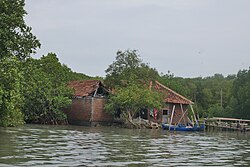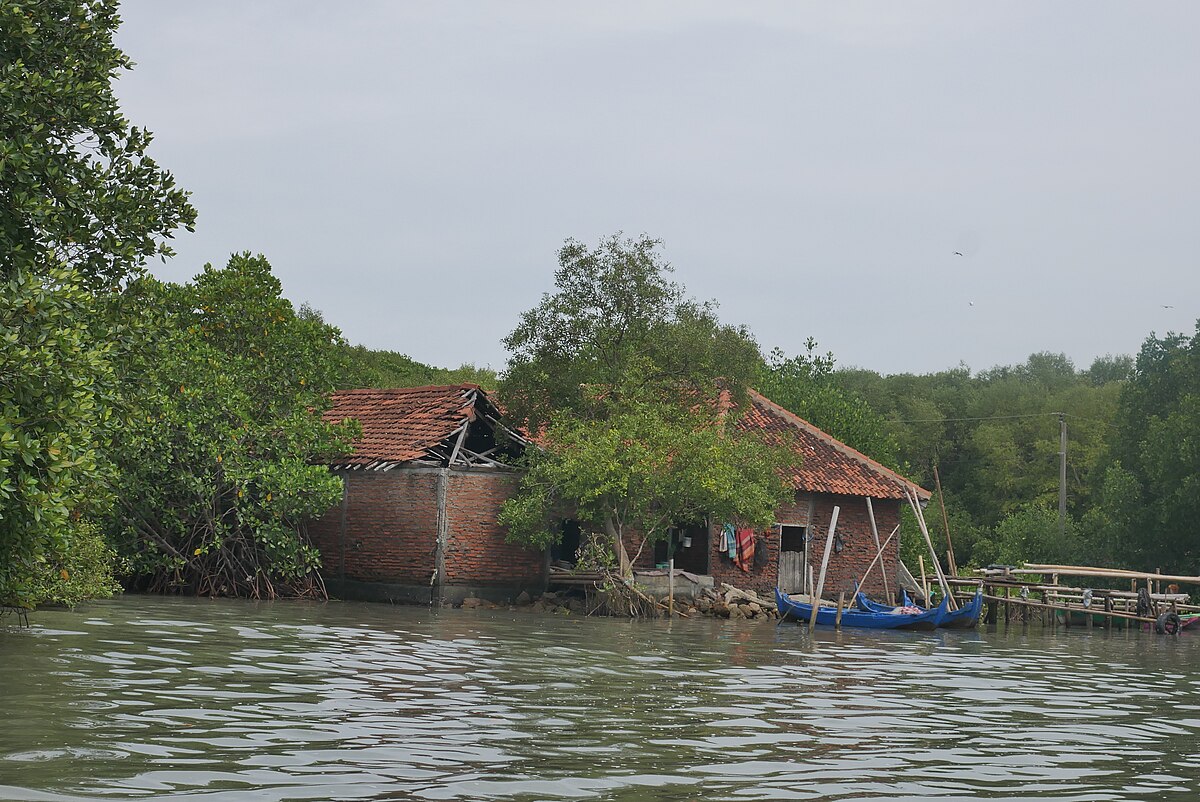Thursday, July 31, 2025
|
This article requires pre-publication review by an uninvolved reviewer (one not substantially involved in writing the article). –Article last amended: Jul 31 at 13:33:17 UTC (history) |
| This article requires pre-publication review by an uninvolved reviewer (one not substantially involved in writing the article).
–Article last amended: Jul 31 at 13:33:17 UTC (history) |

Amid rising sea levels, increasing coastal erosion, and plastic waste pollution, a local farmer from Bedono village, Sayung District, Central Java, has emerged as a symbol of resilience and environmental hope. Ihwanudin, a mangrove farmer, has spent years planting and nurturing mangrove trees to save his sinking village.
Bedono is one of the worst-hit coastal areas in northern Java. Since 1985, the shoreline has retreated dramatically due to land subsidence, mangrove deforestation for shrimp farming, and coastal reclamation projects in nearby Semarang. In the last two decades alone, over 200 buildings have disappeared beneath the sea, leaving only memories and broken roads submerged under brackish water.
Despite these challenges, Ihwanudin chose not to leave like many other residents. Since 2017, he has been actively planting mangrove seedlings in inundated areas to restore coastal ecosystems. His efforts aim to reestablish the ecological function of mangroves as natural wave barriers, carbon sinks, and habitats for marine life.
“Every seed I plant is a hope for tomorrow,” said Ihwanudin, who daily wades through shallow waters collecting plastic waste and inserting seedlings into muddy soil.
His movement is no longer solitary. With support from LindungiHutan, an Indonesian environmental start-up focused on forest conservation and community empowerment, Ihwanudin now collaborates with companies, brands, and individual donors.
As of July 2025, over 200 environmental campaigns have been carried out in Bedono through LindungiHutan, resulting in the planting of more than 98,000 mangrove seedlings across four hectares. Most of the mangroves planted are of the Rhizophora species, known for their ability to stabilize land, filter pollution, and accelerate sedimentation.
Hundreds of companies and brands have joined the cause, contributing thousands of seedlings and promoting environmental education among local communities.
Still, obstacles remain. Plastic debris carried by ocean currents frequently entangles young mangrove roots, reducing survival rates and slowing ecosystem recovery. Ihwanudin stresses the importance of collective support. “We need help, including manpower, funding, and seed donations. This isn’t just about Bedono; it’s about protecting Indonesia’s coastlines,” he said.
LindungiHutan has called on the public to support Bedono and other vulnerable coastal villages, emphasizing that small actions, such as planting a tree, can lead to lasting change.
About LindungiHutan
LindungiHutan is an Indonesian environmental platform that promotes forest conservation and community empowerment. With over 1 million trees planted across 30+ locations, the organization partners with more than 600 brands and businesses. Their programs include Corporatree, Collaboratree, and Carbon Offset initiatives.
This article is based on a press release provided by LindungiHutan on July 7, 2025.


